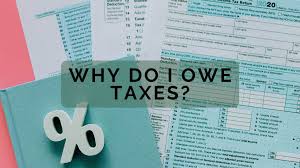During the 2008 financial crisis, the first-time homebuyer tax credit was created to assist make home ownership more affordable for Americans. Though there are other mortgage programs and loans available, the tax provision, in this case, was only for first-time homebuyers. Simply defined, it provided purchasers with a substantial tax credit for the year they acquired their property. Unfortunately, this credit is no longer available. In April 2021, however, legislation to create a new refundable tax credit of up to $15,000 for a first-time homebuyer was submitted. Below, we’ll see how to qualify for the first-time homebuyer tax credit program. We’ll also look at other mortgage schemes that can still help you save money on your first house.
Who is Considered a First-time Homebuyer?
A few requiremtoe met in order to qualify for the first-time homebuyer tax credit. Despite its name, the credit is not limited to persons who have never owned a property. If you haven’t owned a home or been a cosigner on a mortgage in the last three years, you’re considered a first-time homebuyer.
To qualify as a first-time homebuyer, you must meet one of the following criteria:
- Have not owned a property or been a mortgage cosigner in the preceding three years
- Being a single parent who co-owned a home with a former spouse while married
- Be a displaced housewife who has only owned a house with your hubby.
- Have only ever owned a house that was permanently attached to a foundation.
- Have only owned a home that does not meet state or local building rules and cannot be brought up to code for less than the cost of constructing a permanent structure.
Where to Look for First-Time Homebuyer Tax Credit
Aside from the pending federal tax overhaul, there are several options for first-time homebuyers.
First-time homebuyers with a Roth or standard IRA can withdraw up to $10,000 from their funds to purchase a home. The IRS specifies the particular rules and tax repercussions based on the type of account and other variables.
What is the 2021 First-Time Homebuyer Act?
In April 2021, numerous Democratic members of Congress introduced the First-Time Homebuyer Act of 2021. With many of the same restrictions, this bill would reinstate the tax credit, which was first implemented in the aftermath of the 2008 housing crisis.
However, under the current measure, qualifying purchasers might receive a tax credit of up to 10% of the purchase price of their property, up to a maximum of $15,000.
The 2021 first-time homebuyer tax credit is intended to assist low- and middle-income Americans in purchasing property, with the goal of creating generational prosperity in communities of color. This measure has not been signed into law as of May 2022.
How To Qualify for the 2021 First-Time Homebuyer Tax Credit Act?
The first-time homebuyer tax credit would not be offered to everyone. Although eligibility may change before the bill is passed into law, the following are the present requirements:
- You must be a first-time buyer: Within the last three years, you cannot have owned a home or co-signed on a mortgage. This applies to both primary and secondary dwellings.
- Homebuyers who take advantage of the tax credit in 2021 will not be able to claim it again until 2026. Homeowners who took advantage of the 2008 first-time homebuyer tax credit, on the other hand, would be eligible for the 2021 credit.
- You must meet the following income requirements for your area: Homebuyers must have an income that is no more than 60% of the median income in their area. Joint filers and people with several income streams must meet higher income standards.
- First-time homeowners must be at least 18 years old by the purchase date of their property or be married to someone who is at least 18 years old.
- Homebuyers are not permitted to purchase a home from a direct relative, which includes a spouse, parent, kid, aunt, uncle, cousin, or grandparent.
What is the Structure of the $15,000 First-time Homebuyer Tax Credit?
The 2021 first-time homebuyer tax credit would function in the same way as the 2008 tax credit.
Eligible homebuyers may be eligible for a loan of up to 10% of the purchase price of their property, with a maximum loan amount of $15,000.
Once you receive the tax credit, it will be applied to your federal tax payment automatically. Although no formal application is necessary, a supplementary IRS form may be required with your federal tax return.
You are not required to repay the tax credit if you have owned your home for at least four years. If you sell or relocate during the first four years of ownership, however, you must repay a portion of the tax credit based on the length of ownership. The only exclusions are death, divorce, military transfers, and real estate transactions in which your gains are less than your tax due.
Who Is Eligible for the Tax Credit for First-Time Homebuyers?
The First-Time Home Buyer Tax Credit, as the name implies, is only accessible to select persons. These people are as follows:
- First-time purchasers. You will not be eligible if you have previously acquired a home as your principal residence. However, if you have purchased a home for the aim of renting it out or for other reasons, you may still be eligible (though the application process may also be more complex)
- Those who did not own a property in the previous 36 months
- Those who do not earn more than the stipulated income limits
- For those who intend to buy the home as their primary abode. This tax credit does not qualify for a first-time homebuyer who intend to rent the property.
Furthermore, anyone filing for the First-Time Buyer Tax Credit must be at least 18 years old or married to someone who is. In addition, the property in question may not be purchased from a relative. Again, this tax credit is not currently available for house buyers in 2021 or 2022.
How to Apply for the First-time Homebuyer Tax Credit
Because the plan is not yet law, it is unclear how homebuyers will be able to claim the tax credit it will likelykely that it will be comparable to the 2009 First-Time Homebuyer Credit, which was a similar scheme that required homebuyers to complete an additional IRS form to attach to their federal tax return.
If the First-Time Homebuyers Tax Credit is approved, you should speak with an accountant or go to government websites to learn how to apply the credit to your tax return.
Will first-time homebuyers have to apply for the tax credit?
No, most likely not. If you indicate that you are a first-time homebuyer on your tax return for the taxable year, the IRS is more likely to automatically apply the tax credit. However, the details will need to be worked out if and when the measure is passed.
The First-time Homebuyer Tax Credit Restrictions
Though the First-Time Homebuyers Tax Credit could provide a significant financial benefit to millions of Americans, there are some restrictions to be aware of.
The tax credit isn’t meant for real estate investors, house flippers, or anyone else who has a lot of money in real estate.
Buyers will have a tax liability if they use the tax credit and subsequently change their principal residence or sell the property within four years of purchase. Depending on when the home is sold or when the homebuyers move, this can range from $15,000 to $3750. In these circumstances, the homebuyers must repay the tax credit on their next tax return.
There are certain exceptions to the preceding rule. The repayment penalty may not apply if a homebuyer obtained a $15,000 tax credit when they purchased their property but was forced to sell it due to a divorce or military move.
Where can I look for first-time homebuyer tax credits in my state?
Although the federal first-time homebuyer credit is no longer available, similar programs are likely to be available locally. Some governments may provide zero-interest loans and grants to help with the costs of buying a property, such as a down payment.
Many first-time homebuyer programs provide tax breaks in the form of mortgage credit certificates (MCC), which convert a portion of your mortgage interest into a federal tax credit. The tax credit is typically limited to $2,000 and is nonrefundable.
While these programs can assist you in making a down payment and paying for closing fees, be sure to thoroughly understand the criteria. Some of these programs have eligibility requirements, such as minimum credit scores, income levels, and purchase price caps. You may also be required to pursue particular educational courses in order to qualify.
Read Also: 7 Ways You Can Avoid Death Taxes
What other tax credit am I eligible for?
First-time homebuyers are eligible for the same tax breaks as all homeowners. Some of these advantages are deductions that reduce your taxable income. Others are credits that reduce the amount of tax you owe dollar for dollar.
#1. Mortgage insurance deductions
While you cannot deduct homeowners insurance rates, you may be able to deduct mortgage insurance premiums if you itemize on Schedule A.
The tax break applies to any mortgage insurance you paid, whether for a conventional loan or one backed by the government, such as an FHA loan. You can also subtract the funding charge from a Department of Veterans Affairs-backed mortgage.
If you paid more than $600 in interest during the tax year, expect to get a Document 1098 in the mail from your mortgage lender; this form includes the mortgage interest you paid as well as your mortgage insurance.
#2. Mortgage interest deduction
You can deduct any mortgage interest paid on your federal income tax return using the mortgage interest deduction. To qualify for the tax reduction, you must itemize your deductions on Schedule A.
Married joint filers can deduct up to $1 million in mortgage interest if the loan was taken out before December 16, 2017. If you acquired your house after that date, you can deduct mortgage interest up to $750,000 ($375,000 if you’re single or filing separately).
Mortgage points may also be deducted. As long as you itemize your deductions, you can deduct mortgage points either in the year you purchase the home or incrementally over the length of your loan.
Read Also: MORTGAGE ORIGINATION FEE: What You Should Know
#3. Property tax exemptions
The state and local tax deduction, or SALT, allows taxpayers to deduct money paid to state and local governments for income or property taxes.
If you itemize on Schedule A, you can deduct up to $10,000 in state and local taxes from your federal taxable income.
#4. Tax breaks for renewable energy
If you have made energy-efficient upgrades to your house, you may be able to save thousands of dollars in taxes.
Homeowners can qualify for the residential energy efficient property credit if they install:
- Water heaters and solar panels
- Geothermal energy heat pumps
- Micro wind turbines
- Cells that burn fuel
- Heating and cooling systems that use less energy
The tax credit is worth up to 30% of the cost of installing these systems, depending on when the system was installed. However, the credit lowers each year until the end of 2021, so timing is critical if you want to take advantage of this tax reduction.
#5. Compare various lenders
If you’re a first-time homebuyer searching for a mortgage, shop around and compare rates from several lenders.
Conclusion
If the First-Time Homebuyer Act of 2021 becomes law, many low- and middle-income Americans will be eligible for a tax credit to help them qualify for a home. Furthermore, unless you sell the home within the first four years of ownership, the tax credit is not required to be repaid.
Meanwhile, first-time homebuyers can look into current programs such as FHA loans, MCCs, and IRA withdrawals to help reduce the cost of purchasing a property. If you recently bought a home, make sure you understand the home-related expenses to deduct. This can help you reduce your taxable income.






